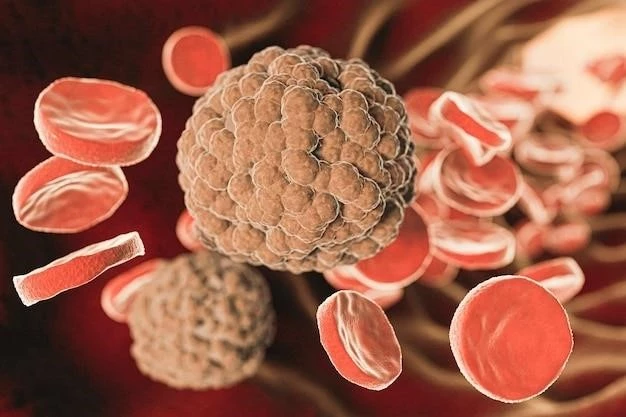Article Plan⁚ Disease — Thymic Epithelial Tumor
The internet provides valuable information on Thymic Epithelial Tumors‚ which are rare cancers originating in the thymus. It discusses causes‚ risks‚ types like thymoma and thymic carcinoma‚ early detection‚ diagnosis‚ staging‚ treatment options‚ and ongoing research for this disease.
Overview of Thymic Epithelial Tumors
Thymic epithelial tumors‚ including thymoma and thymic carcinoma‚ originate in the thymus gland and are classified as rare cancers. While the exact cause is unknown‚ conditions like MEN1 may increase the risk. Early detection is crucial for effective treatment‚ as symptoms may not always be apparent in the early stages. Diagnosis involves various tests to confirm the presence of malignant cells in the thymus. Understanding the types‚ causes‚ and prognosis of thymic epithelial tumors is essential for better management of this condition.
Causes and Risk Factors
Thymic epithelial tumors‚ such as thymoma and thymic carcinoma‚ have complex etiologies with causes not yet fully understood. However‚ individuals with rare inherited conditions like MEN1 may have an increased risk of developing thymic cancer. Additionally‚ there may be connections between thymoma and autoimmune conditions. Early detection and understanding of risk factors are vital for timely intervention and improved outcomes for individuals affected by these tumors.

Types of Thymic Epithelial Tumors
Thymic epithelial tumors‚ such as thymoma and thymic carcinoma‚ are rare cancers that originate in the cells covering the thymus gland. Thymomas are the most common tumors of the anterior mediastinum and account for a significant portion of mediastinal tumors. On the other hand‚ thymic carcinoma‚ including small cell carcinoma tumors‚ represents a less common but aggressive form of thymic cancer. Understanding the differences between these types of thymic epithelial tumors is crucial for accurate diagnosis and tailored treatment approaches.
Symptoms and Early Detection
Thymic epithelial tumors‚ including thymoma and thymic carcinoma‚ may not always present noticeable symptoms early on‚ making early detection challenging. However‚ common symptoms that may develop as the tumor progresses include chest pain‚ coughing‚ difficulty breathing‚ and superior vena cava syndrome. Regular check-ups and imaging tests can aid in the early detection of these tumors‚ improving the chances of successful treatment outcomes. If you experience persistent or concerning symptoms‚ it is crucial to consult a healthcare professional promptly for further evaluation.
Diagnosis and Staging
Thymic epithelial tumors‚ including thymoma and thymic carcinoma‚ are diagnosed through a combination of imaging tests like CT scans‚ MRIs‚ and PET scans‚ along with biopsies to confirm the presence of malignant cells. Staging is crucial to determine the extent of cancer spread and guide treatment decisions. Various stages‚ ranging from localized to metastatic‚ help oncologists develop personalized treatment plans for individuals with thymic epithelial tumors. Regular monitoring and accurate staging are essential for effective management of these rare cancers.
Treatment Options

When it comes to treating thymic epithelial tumors like thymoma and thymic carcinoma‚ various approaches are available‚ including surgery‚ chemotherapy‚ radiation therapy‚ and targeted therapy. The treatment plan is determined based on factors like the tumor type‚ stage‚ and overall health of the patient. Surgery to remove the tumor is often the primary treatment‚ with adjuvant therapies used to minimize the risk of recurrence. It is crucial to consult with a multidisciplinary team of healthcare professionals to determine the most suitable treatment approach tailored to individual needs and preferences.
Prognosis and Survival Rates
The prognosis of thymic epithelial tumors like thymoma and thymic carcinoma depends on factors such as histology‚ stage‚ and treatment approach. Typically‚ the overall 5-year survival rate is around 78 for thymoma and 30 for thymic carcinoma. Early detection and accurate staging play a crucial role in determining the prognosis and guiding treatment decisions. It is essential for individuals diagnosed with these rare cancers to work closely with their healthcare team to explore all available treatment options and improve their chances of long-term survival.
Ongoing Research and Future Developments
Ongoing research on thymic epithelial tumors focuses on understanding the underlying molecular mechanisms driving the development of thymoma and thymic carcinoma. Scientists are exploring novel treatment modalities‚ including targeted therapies and immunotherapies‚ to improve outcomes for individuals with these rare cancers. Additionally‚ advancements in diagnostic tools and personalized medicine offer hope for more precise and effective management of thymic epithelial tumors in the future. Staying informed about the latest research developments can help individuals make informed decisions about their treatment options.
